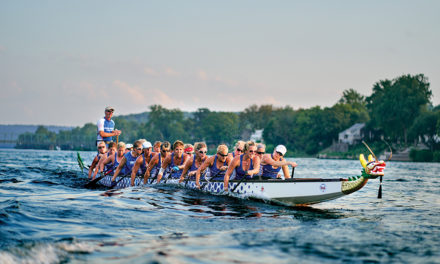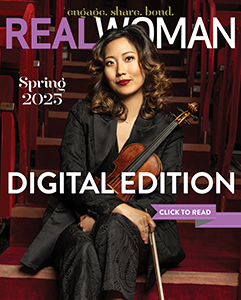Last fall, the medical community collectively rolled its eyes when The View’s Joy Behar wondered out loud (and somewhat derisively) why nurse and Miss America contestant Kelley Johnson would wear “a doctor’s stethoscope” during her onstage monologue. Behar’s implication reflected the all-too-common misperception that nurses are still physician handmaidens instead of some of the most essential people employed by hospitals and medical practices, providing critical care to patients in every facet of medicine on a daily basis.
Behar offered a half-hearted apology, but nurses responded en masse under the #nursesunite hashtag, bombarding Twitter and Instagram with expressions of pride for a profession that has grown increasingly sophisticated and multifaceted. “I don’t think Joy Behar is alone in not understanding what nurses do. On a basic level, to say a nurse shouldn’t have a stethoscope is absurd. Nurses use them all the time,” says Eileen Horton, MSN, MSM, RN, NEA-BC, Senior Vice President of Hospital Administration and Chief Quality Officer for Capital Health. “But more importantly, if that’s what her impression is, then how can she possibly understand where nursing is going? Nurses are definitely at the forefront of being care providers.”
The reality is, whether or not Joy Behar or the rest of us have been paying attention, the role of nursing has continued to expand and evolve to the point where nurses are involved in nearly every aspect of hospital and medical practice operations, including management, research, surgery, technology, patient navigation and patient experience, community education, and, of course, patient care.
Real Woman didn’t have to look further than Capital Health’s team of experienced, dedicated, and passionate nurses to underscore the point. We asked experienced nurses from various areas of the medical profession to share what might surprise us about their jobs. They did us one better, making us laugh and cry as they shared patient stories and memories from throughout their careers, as the profession has evolved. As we listened, we discovered they routinely go above and beyond to make patients’ lives a little better, their pain more manageable, and to ease their circumstances, sometimes at their own expense. After all that, we think the stethoscope is beside
the point.
RW: How have you seen the nursing profession change over the years?
I went from the ICU to the emergency room, which was absolutely my first love. But that’s when times were so very different. People came in and it was like, ‘Take a number.’ Now you triage. You bring people in by their acuity. I remember one woman coming in about 35 years ago. I was the first person she saw, and she said to me, ‘I really want you to come out here and look at this baby. This baby is really sick.’ So I went out, and this woman is literally sitting in a chair with 100 other people waiting, and her baby was just barely breathing. It was a preemie who was septic, and we were able to save her life.
 —Pat Michael, MSN, RN, Divisional Director of Patient Services, 42 years in nursing
—Pat Michael, MSN, RN, Divisional Director of Patient Services, 42 years in nursing
You’ve always had to be well-rounded and quick on your feet as a nurse, but over the years, I’ve watched nursing become a more sophisticated and educated profession. It’s gone from being a blue-collar job to a white-collar profession, in part because there are so many opportunities within nursing and in part because the salary has risen over the years. Also, the way nurses are perceived is different. Many years ago, we used to have to stand when a doctor came into the room, but we are now an essential part of the team, not a handmaiden.
—Peg Reiter, RN, Ph.D., NEA-BC, Chief Nursing Officer, 40 years in nursing
RW: They say nursing is not a profession; it’s a calling. Has that been your experience?
You don’t pick nursing. Nursing picks you. It’s an actual calling that you just have in you. We always say, ‘You have to laugh at nursing or you’ll cry.’ Just as you get to that point, you get a patient or something happens to you that lifts you right back up and makes you realize why you became a nurse.
—Colleen Delso, MS, RN-BC, CMPE, Administrative Director, Primary Care Division, Capital Health Medical Group, 21 years in nursing
I was doing well financially in the business world, but I wanted to be a nurse. I told my husband I was considering making the change, and he said, ‘Do what’s in your heart.’ I went back, and we redefined our life, and it’s the best decision I ever made. Even after I started working in guest relations, I kept working at the bedside, until about 5 years ago. I would work my day job in my dress clothes. Then I’d go down the hall, do a quick switch in the ladies’ room, throw on my scrubs, and I’d go up and take a shift up on the floor from 7:30 p.m. to 11:30 p.m.
—Linda Martin-Mills, RN, Manager of Patient Experience, 19 years in nursing
At a very young age, I knew I wanted to be a nurse. I was never grossed out by blood or tragedies. If there was a car accident, I was always the first one to run up and see if there was something I could do to help.
—Barbara Grande, MSN, RN-BC, BS, Director of Nursing Informatics, 36 years in nursing
RW: What is the nurse’s role in the community?
Integrated nurses do so many different things. It’s amazing having the chance to be out in the community educating kids and adults and watching their faces as the light bulb goes on. When I do a bike safety program, the preschoolers, the older kids, even the adults—their faces light up when they get it. I watch it happen. That gives me so much satisfaction.
 —Nancy Distelcamp, RN, CEN, Injury Prevention Coordinator, The Bristol-Myers Squibb Trauma Center at Capital Health Regional Medical Center, 29 years in nursing
—Nancy Distelcamp, RN, CEN, Injury Prevention Coordinator, The Bristol-Myers Squibb Trauma Center at Capital Health Regional Medical Center, 29 years in nursing
For as long as I can remember, I have always wanted to be a nurse. Being a community nurse gives me the opportunity to listen, teach, and support our friends and neighbors in the community and to address their individual needs. Helping others is what I love to do, and it means a lot to me to be able to do it right here where we live.
—Mary Rosner, MSN, RN, Community Health Education Coordinator, 40 years in nursing
RW: Why do you love what you do?
For as long as I can remember, I have always wanted to be a nurse. Being a community nurse gives me the opportunity to listen, teach, and support our friends and neighbors in the community and to address their individual needs. Helping others is what I love to do, and it means a lot to me to be able to do it right here where we live.
—Mary Rosner, MSN, RN, Community Health Education Coordinator, 40 years in nursing
I work with newborn babies. Sometimes the fathers are nervous. I love to get them involved and see the transformation to where they can bathe their baby and be proud of being a father. I love to see them go from being scared to death to assuming this responsibility and becoming an important part of the care of this family that they helped create. My most profound moments are seeing the walls broken down and being open and vulnerable and truly being who they are.
—Dahlia Guzik, RN, 22 years in nursing
 I’ve sat with dying patients and held their hands. And I’ve never gone home one single day and not loved my job. Not one day. How many people can look in the mirror and say, ‘I saved a life today?’
I’ve sat with dying patients and held their hands. And I’ve never gone home one single day and not loved my job. Not one day. How many people can look in the mirror and say, ‘I saved a life today?’
—Peg Reiter, RN, Ph.D., NEA-BC, Chief Nursing Officer, 40 years in nursing
RW: How have your experiences within the profession led you to what you do today?
As part of my role, I work closely with the nurse managers to develop budgets and staffing guidelines based on national benchmarks. I learned to work closely with the finance department. If, as a nurse, you can understand finance plus identify what the needs of nursing are, it allows you to advocate for what you need for the patient and for the nurses to provide proper care.
—Ruth Ann Tobolski, RN, MA, NEA-BC, Divisional Director of Patient Services, 44 years in nursing
All those things you learn when you’re assessing patients and moving quickly and critical thinking, that’s how I got into the computer piece of it. What I do now isn’t the same as being at the patient’s bedside. I’m good with managing situations, and I’m quick on my feet, and that’s how I ended up getting into the technology piece, really just learning how to manage and put projects together using my organizational skills. —Barbara Grande, MSN, RN-BC, BS, Director of Nursing Informatics, 36 years in nursing
—Barbara Grande, MSN, RN-BC, BS, Director of Nursing Informatics, 36 years in nursing
People often are shocked that I’m a trauma nurse, that my background is in emergency room nursing, and they are put at ease when they find out I’ve had that experience. I’ve basically seen it all. I do a talk to high school seniors every year about what it’s like to be a nurse and all the different roles nurses have. They are surprised to find out that you can have such a diverse background and have so many experiences. I love what I do, and I think that’s obvious to the people I talk to in the community.
—Nancy Distelcamp, RN, CEN, Injury Prevention Coordinator, 29 years in nursing
RW: What do you wish people understood about nursing?
There are patients I’ll always remember. You remember names. You remember their stories. Nurses don’t become cold and aloof. They maintain their compassion and keep it with them forever.
—Pat Michael, MSN, RN, Divisional Director of Patient Services, 42 years in nursing
Nurses play so many roles. When I had my son, I decided to stay home with him, but I still worked weekends and nights because I loved what I did so much, and I ended up doing so many different jobs. I was a supervisor at Regional, I taught CPR, and I was a substitute nurse at a school. When my son got older, I started working in cardiac rehab, and eventually I moved into community education.
—Mary Rosner, MSN, RN, Community Health Education Coordinator, 40 years in nursing
 Being a nurse is all about dedication. You have to give all you can to your patients, and that’s what I do each day. We go above and beyond for our patients, whatever that involves. I have to be selfless, and that’s what I do.
Being a nurse is all about dedication. You have to give all you can to your patients, and that’s what I do each day. We go above and beyond for our patients, whatever that involves. I have to be selfless, and that’s what I do.
—Theresa Nixon, RN, 10 years in nursing
RW: What role did you play in turning Capital Health into what it is today, and what do you do there now?
There’s a lot of education that’s involved in what we do at the Stroke Center. We do monthly educational sessions for staff. We provide in-services. I go down to the Emergency Department as much as I possibly can to walk them through the processes and procedures, especially the newer staff. I’m there as a resource for those nurses, and I’m responsible for maintaining the procedures.
—Geri Sanfillippo, MSN, RN, SCRN, Stroke Coordinator, 25 years in nursing
By the time we moved from Mercer to Hopewell in 2011, we were handling 24,000 visits in our Pediatric Emergency Department annually, and we were fully staffed by pediatricians and had a fully staffed in-patient unit with pediatric hospitalists. We were the first to offer a pediatric focused emergency program. That’s our success story.
—Cookie Estlow, Pediatric Nurse Practitioner, 31 years in nursing
As the liaison between the physician and the patient, I’m here for emotional support and education. We work as a team—I touch base with the patient at the beginning of her journey, right after she learns she has breast cancer and has a lot of questions. I try to meet her as soon as possible after her diagnosis so she knows I’m available throughout the process. I always say, ‘You don’t get rid of me.’
—Patricia Tatrai, RN, MS, OCN, CBCN, Breast Navigator at the Center for Comprehensive Breast Care, 35 years in nursing
RW: Tell me a moment in your nursing career that will stay with you always?
 A family brought their son to the pediatric ED after he became unresponsive at home. He was resuscitated, placed on life support, and transferred. He was taken off life support 3 days later. It was heart breaking. The family sent a letter a few weeks later thanking us for giving them those 3 extra days. They donated his organs. It’s hard, but you do everything in your power to save that child’s life.
A family brought their son to the pediatric ED after he became unresponsive at home. He was resuscitated, placed on life support, and transferred. He was taken off life support 3 days later. It was heart breaking. The family sent a letter a few weeks later thanking us for giving them those 3 extra days. They donated his organs. It’s hard, but you do everything in your power to save that child’s life.
—Cookie Estlow, MSN, RN, CPEN, PNP-BC, APN, C, Pediatric Nurse Practitioner, 31 years in nursing
Back when I worked in the Emergency Department, there was one gentleman who had made some poor choices in his career, and he became homeless. We would keep a stretcher for him outside of our trauma bay in the old ED. He would just come in and curl up on the stretcher. We would give him haircuts and shave him. He would wake up hungry, and we’d feed him, and then he’d be on his way. Whenever anybody would come in and start giving a nurse a hard time, he would jump up, fists up, ready to protect his nurses. Then one day, I was doing a chart review and I came across his name and saw that he had died alone. I was a blubbering idiot reading this chart. We were all he had, and that’s when I realized it.
—Geri Sanfillippo, MSN, RN, SCRN, Stroke Coordinator, 25 years in nursing
I’ll always remember the day my “Miracle Boy” came in as a trauma patient. He was a 16-year-old involved in a motor vehicle crash. He had severe broken bones and internal bleeding, and the trauma team worked together to save this boy. He died in front of us at least three times, and the amount of people that had their hands in
his survival was unbelievable. We did everything in the books and then some to save his life. Youth was definitely on his side (as well as the best trauma team around). —Marian Moore, Trauma Program Manager, 33 years in nursing
DAISY AWARDS
After partnering with the Daisy Foundation to recognize excellence in nursing, Theresa Nixon, RN at Capital Health Regional Medical Center and Dahlia Guzik, RN at Capital Health Medical Center – Hopewell became the first Capital Health nurses to receive the prestigious award last fall. The award recognizes nurses based on nominations from patients and their loved ones, as well as colleagues.

Nominees should demonstrate the I CARE principles as recognized by the DAISY Foundation:
Integrity: Maintains trust and confidence of patients
Commitment: Serves patients and families by honoring Capital Health mission
Advocacy: Focuses on the best interest of patient
Respect: Provides dignity & respect to everyone
Excellence: Strives for highest quality care
If you know of a Capital Health nurse who you think is worthy of the distinction, submit your nomination by completing the online form available here or send it to:
Capital Health Medical Center – Hopewell
ATTN: Nursing Office, Kathy Donaldson
DAISY Award Nomination Committee
One Capital Way
Pennington, NJ 08534







